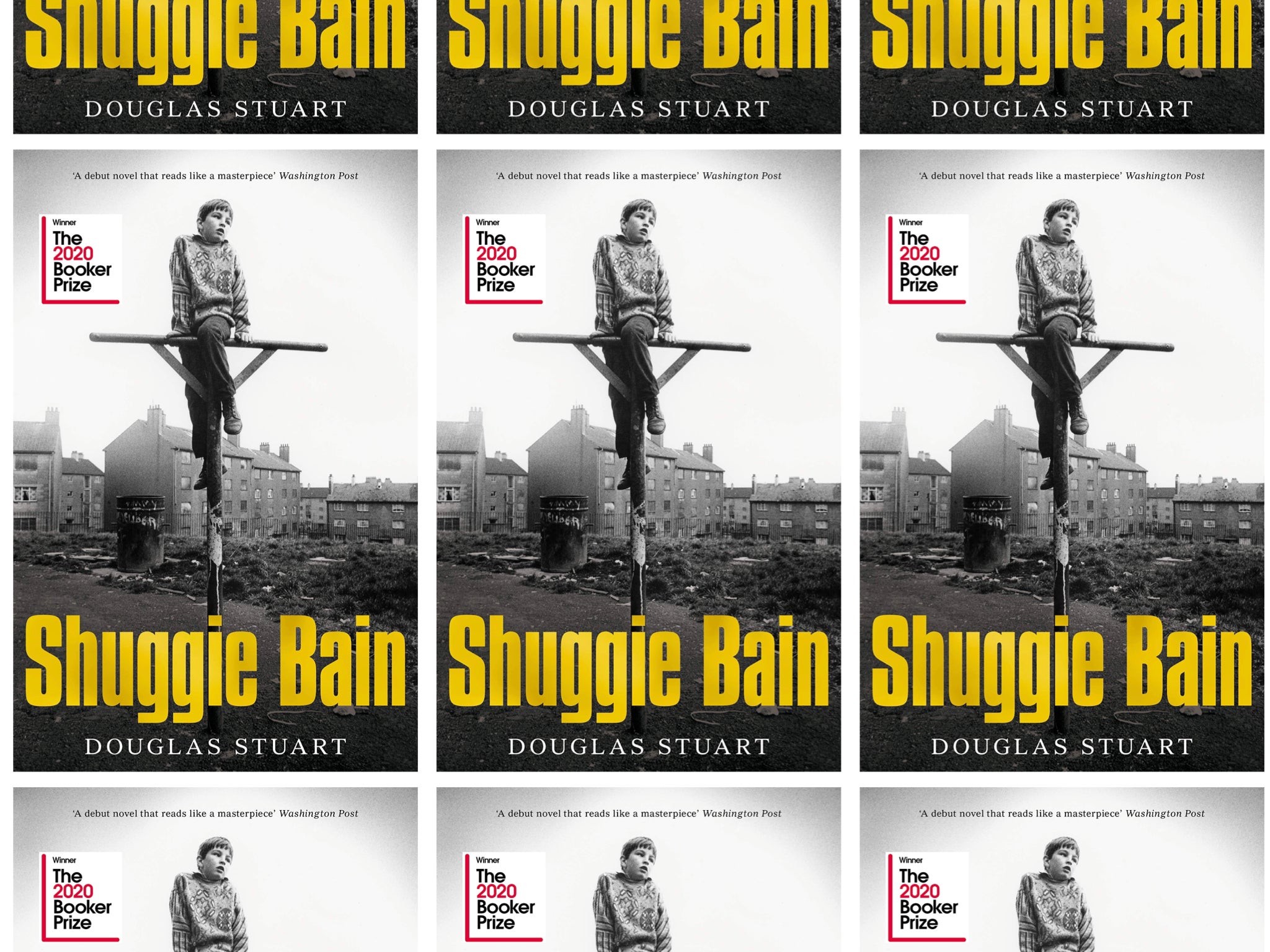We’ve never needed working-class stories like Shuggie Bain more
Douglas Stuart is adapting his Booker Prize-winning novel, set in a Glasgow scarred by Thatcherism, for the BBC. Thank heavens for that – the diet of wealth-obssessed TV like ‘The White Lotus’ and ‘The Crown’ is out of step with life in our cash-squeezed age, writes Jessie Thompson


Your support helps us to tell the story
From reproductive rights to climate change to Big Tech, The Independent is on the ground when the story is developing. Whether it's investigating the financials of Elon Musk's pro-Trump PAC or producing our latest documentary, 'The A Word', which shines a light on the American women fighting for reproductive rights, we know how important it is to parse out the facts from the messaging.
At such a critical moment in US history, we need reporters on the ground. Your donation allows us to keep sending journalists to speak to both sides of the story.
The Independent is trusted by Americans across the entire political spectrum. And unlike many other quality news outlets, we choose not to lock Americans out of our reporting and analysis with paywalls. We believe quality journalism should be available to everyone, paid for by those who can afford it.
Your support makes all the difference.The cost of living crisis is going to get much worse, but what’s the biggest thing on TV? The Crown, Netflix’s bejewelled royal soap opera. Oh, the tyranny of inherited wealth and privilege. A report earlier this year suggested a further 1.3 million people will fall into poverty this winter, but a disgraced ex-cabinet minister is currently getting paid £400k to eat bugs on ITV. Bills are getting higher, and the guests at The White Lotus are ordering more caviar. Television has never felt so out of step with our times. Reality is biting hard, but, right now, you’ll rarely see that on your screen.
The news this week that Douglas Stuart is adapting his Booker Prize-winning debut novel Shuggie Bain into a drama for the BBC should signal a change. The viscerally written story of a young boy growing up in Glasgow with an alcoholic mother is based on Stuart’s own life story. The 46-year-old author grew up on the grey, concrete Sighthill estate, full of highrises and crumbling tenements; his mother – who, like the character in the book, was called Agnes – died when he was 16. In the novel, she wears a fur coat like armour in the face of life’s disappointments, her glamour incongruous with the fact that her life is ruled by plastic bags filled with lager cans.
“I wouldn’t have needed to have written it if my mother had still been alive,” Stuart has previously said. But the novel is also about a community reckoning with the scars of Thatcherism. The decimating of industries. The hollowing out of families. The difficulty in just trying to get by, but never losing dignity. The determination to maintain a sense of humour. The novel is a hard but essential read, and the decision to bring it to the screen should, rightly, further embed it in our national consciousness.
Although Shuggie was only released in 2020, it has already acquired the term “modern classic”; many of the 1.5 million readers who have bought the book worldwide would agree. With his second novel Young Mungo, a coming-of-age love story between two boys, again set on a Glasgow council estate, Stuart has cemented his status as a vital new voice for the working class. And yet, there was a time when he would not be such a lone figure; it was not so difficult in the past to find working-class writers in mainstream British culture. The kitchen-sink realism of playwrights like John Osborne and Arnold Wesker in the late Fifties made way for a golden era of working-class voices in the Sixties, Seventies and Eighties. Cathy Come Home. Kes. Boys from the Black Stuff. A Taste of Honey. Rita, Sue and Bob Too. Many were epoch-defining, startling and funny. They were not polemics. Nor were they necessarily capital-p Political. Many were simply rooted in a working-class milieu, like the sitcoms Steptoe and Son, Porridge or Rising Damp.
They possess the cult status that a book like Shuggie Bain has begun to acquire. The side wall of Glasgow’s Barrowland Ballroom is now adorned with a Shuggie Bain mural, featuring a quote from the novel: “You’ll not remember the city. You were too wee, but there’s dancing. All kinds of dancing.” It’s what Agnes tells her son about the thrills of life in town; this week, in a BBC Imagine… documentary about his work, Douglas Stuart admitted – somewhat affectionately – that he’d witnessed a man urinating on the mural. That was fine by him, really, because “we shouldn’t worship anything. We shouldn’t put things on a pedestal.” But his book has acquired a special kind of respect. Rightly, it has been garlanded with prizes and praise. I’ve yet to speak to anyone who didn’t agree that it’s a beautiful, vital book. All this despite the fact that Stuart – who apparently didn’t pick up a book himself until he was 16 – has said that Shuggie was rejected by more than 40 editors. Many said they expected it to win prizes, but still didn’t take it on. It was entirely possible that the novel might never have been published.
Why? Why does our culture turn away from working-class stories, even when gatekeepers can see their significance? Shane Meadows’s This Is England, an odyssey through working-class youth culture in the 1980s, was one of the best TV dramas of the 21st century. More recently, Help, written by Jack Thorne and also made by Channel 4, revealed the unbelievable circumstances faced by low-wage care workers during the pandemic. But both remain unusual, damned with labels like “gritty”, and yet they are becoming more relevant. Much like Ken Loach’s 2016 film I, Daniel Blake, about a man whose benefits application is rejected after a heart attack leaves him unable to work. The film’s original star, Dave Johns, has decided to revive it as a stage play in Newcastle next year, updating the original screenplay to bring it up to speed with our current crisis. “The story is still as relevant as it was in 2016; maybe even more so now with the cost of living crisis making it even harder for those who are already struggling to find a way out of poverty,” he has said.
In our Saturday Interview today, Stephen Graham brilliantly describes TV as “the empathy box in the corner of anybody’s home”, and Stuart says he set out to show people “this is what it was like… this is how it could feel”. But these are bleak times, and, of course, the other word normally associated with such stories is “bleak”. Stuart said himself in his Imagine… documentary that he feared Shuggie Bain would be a story that people would find simply too hard to look at. Too difficult. Too depressing. But that’s also a way to ignore the humanity. Like the mural, Shuggie has colour, dancing, joy – it’s full of life. As the poet Andrew McMillan wrote, “the idea that the working class might have their own cultural identity too often gets dismissed, and that creates a void”. We should fill that void with every kind of life.



Join our commenting forum
Join thought-provoking conversations, follow other Independent readers and see their replies
Comments